A2 PHOTOGRAPHY
PERSONAL INVESTIGATION
BUNKER ARCHAEOLOGY
A2 PHOTOGRAPHY
PERSONAL INVESTIGATION
BUNKER ARCHAEOLOGY
A2 Photography
PERSONAL INVESTIGATION
BUNKER ARCHAEOLOGY
September 1st, 1939: Nazi Germany moves to invade Poland.
September 2nd, 1939: The United Kingdom and France offer an ultimatum that requires the removal of German force from Poland.
September 3rd, 1939: PM Neville Chamberlain announces over BBC Radio the expiration of the UK’s ultimatum to Germany and declares war. “consequently this nation is at war with Germany”
June 30th, 1940: Nazi Germany invades the Channel Islands.
July 1st, 1940: Nazi Germany complete their invasion of the Channel Islands.
During the Occupation, life for Islanders changed dramatically. Over the 5 years under Nazi rule, islanders were forced to accept several changes and new laws, some of which are as follows:
The occupying forces also built several bunkers and fortifications that were fully equip with a large array of weapons, including anti-aircraft rifles (the remains of which can still be seen today all over the island). Barbed wire and mines littered the coast of Jersey and access to the island’s famous beaches was completely prohibited.
Throughout the Occupation, many islanders did what they could to resist their occupiers. Many people made, hid and distributed crystal radio set and underground newspaper services. Other forms of resistance included sheltering Russian slave workers and Jews. Anyone found guilty of the above ‘crimes’ were often sent to concentration camps in Europe. 570 people from both Jersey and Guernsey were sent to Europe as punishment.
Known for running the Island based on fear, the Germans often had informants. People who informed often informed on their neighbours, friends and even members of their own family. This was out fear of punishment and often the temptation of rewards such as the promise of extra rations.
May 9th 1945: The Liberation of Jersey.
The photographic archive at the Societe Jersiaise holds over 80,000 photographs taken between the 1840’s and the present time, approximately 36,000 of these images have also been put on an online platform. It is Jersey’s biggest collection of nineteenth and early twentieth century photographs.
Photography arrived in Jersey on 9th May 1840 just nine months after it had been first publicized in the urban centres of England and France. The archive keeps examples of work by important nineteenth century photographers such as William Collie, Charles Hugo, Thomas Sutton and Henry Mullins.
On Tuesday 4th June 2019 we visited the Societe Jersiaise’s photographic archives to begin our A2 coursework project on the German Occupation. We looked at photography by each of these artists, these photographs had been stored in plastic files in a folder and had to be handled with gloves if they were to come out for any reason, this highlighted the significance of the photography that we were having the opportunity to view.
The images that I saw showed me both the difference between the past and the present, and how the German occupation in Jersey affected the island, but also how similar things were, in terms of the places that are still extremely recognizable from the photographs in real life,
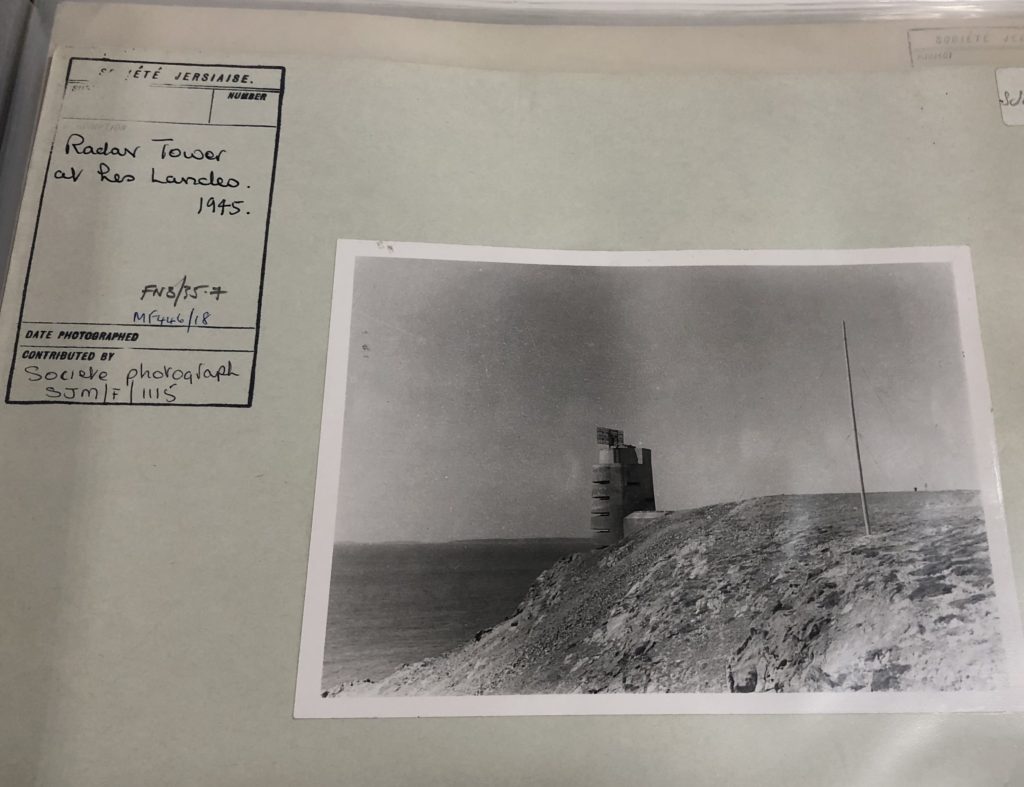
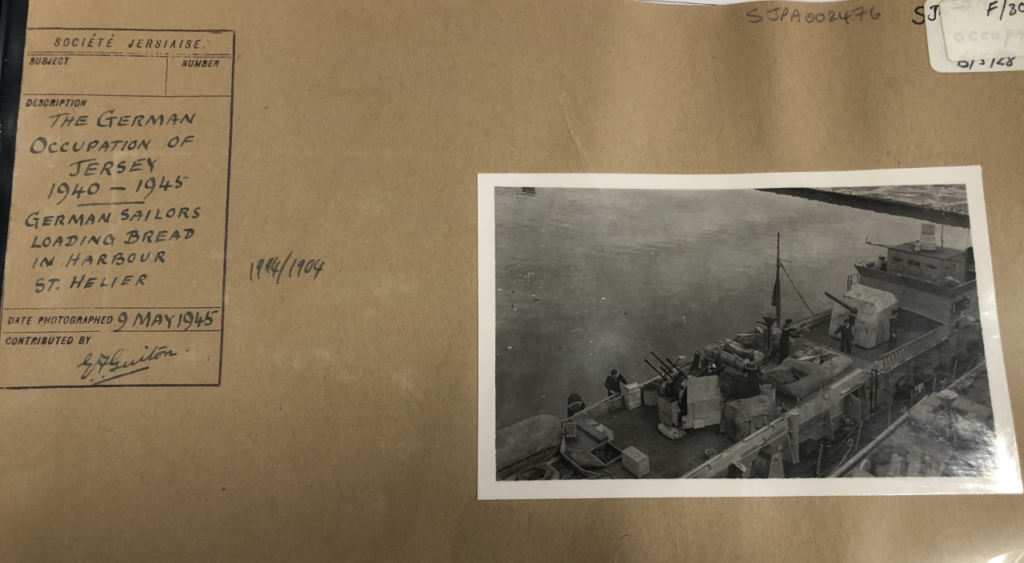
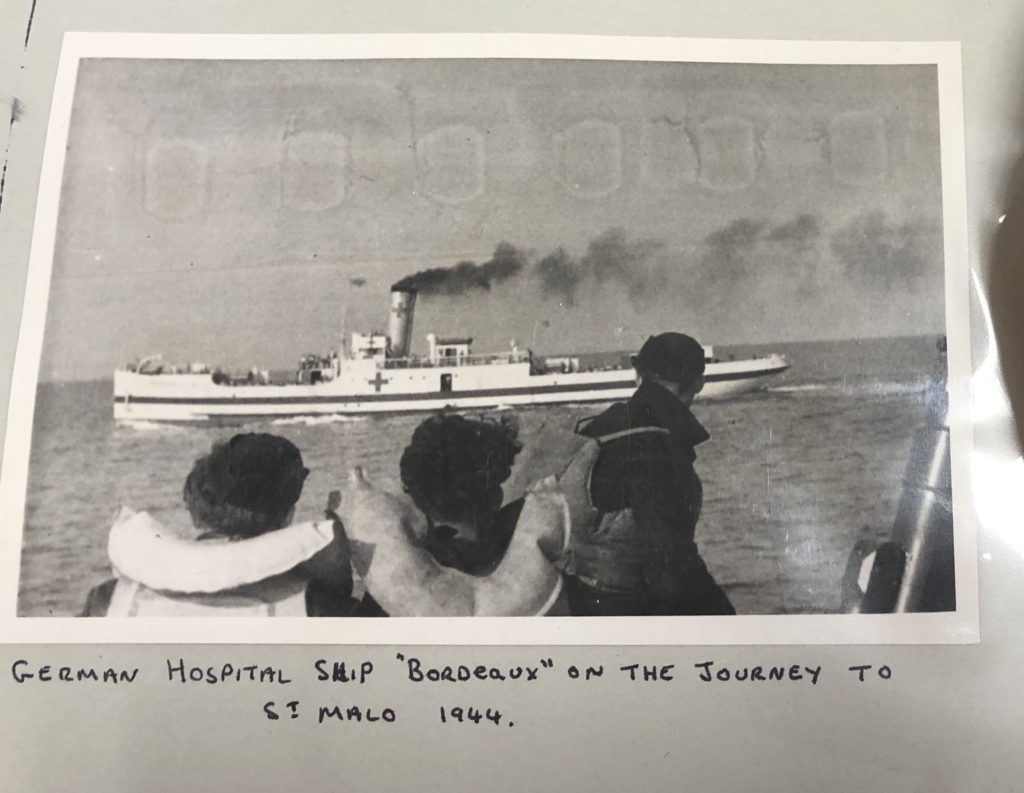
WHAT WAS THE TASK?
To start gaining inspiration for the new project, we started of by taking photos of various things, people, objects and places which relate to the occupation of Jersey. We first thought of the idea of taking images of items from either a charity shop or an antiques shop which may have items which date back to the 1930’s and 40’s. In the shop window there were various items of jewelry and valuables which may have significant connections to the war.
We also found a street which was blank and untouched, almost as if nothing had been done to it since the occupation. The image of the street is also a recreation of an image from the archives which shows the exact same street from the 1940’s. Although the uses of the buildings had changed, the exteriors remained almost the same.
The last place we went to was the market, which again has significant historical importance in Jersey. There we found sets of vintage postcards, which some of them dated all the way back to the 1920’s, and some even had writing on them which shows the personal connection these items had to people.
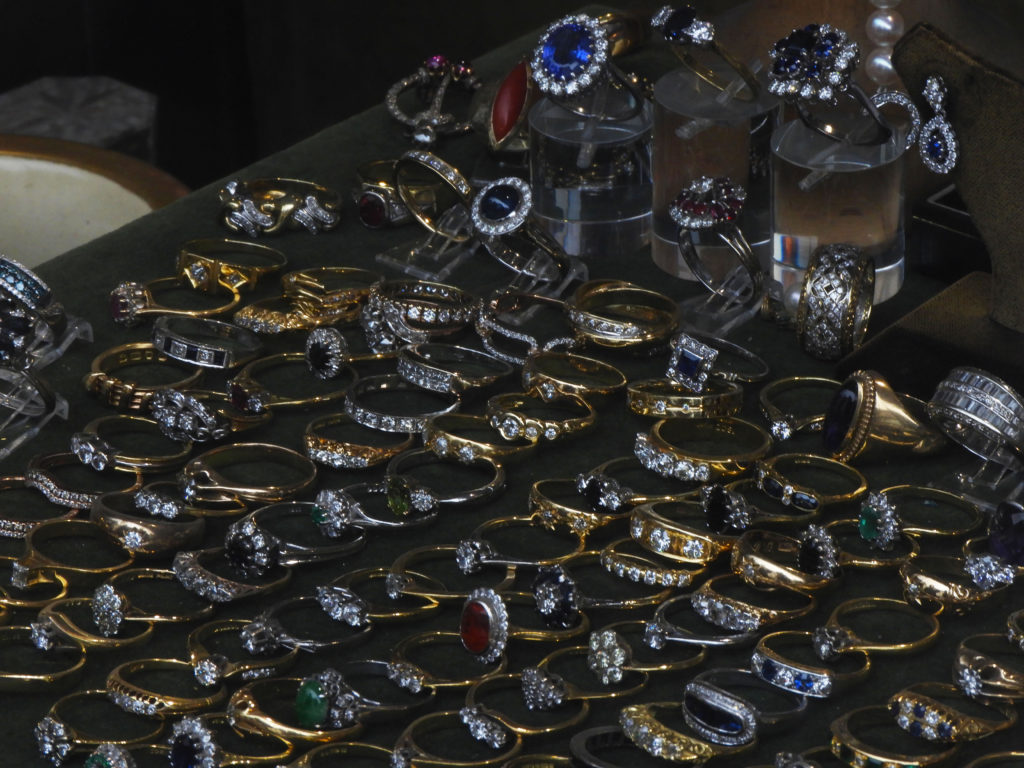
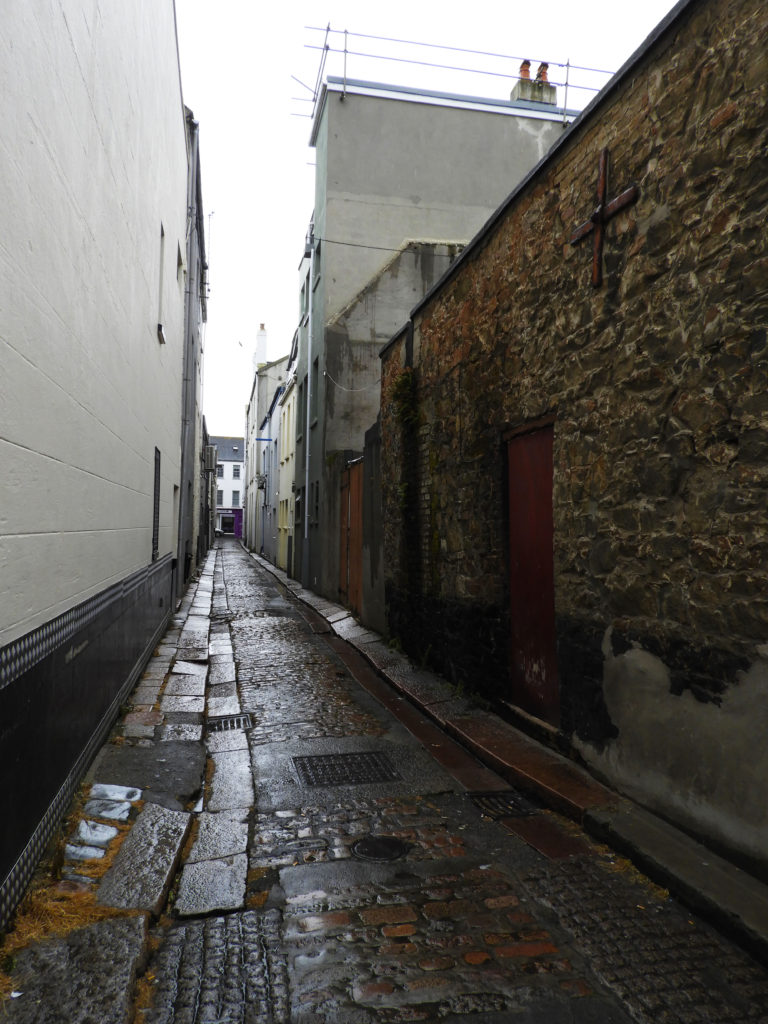
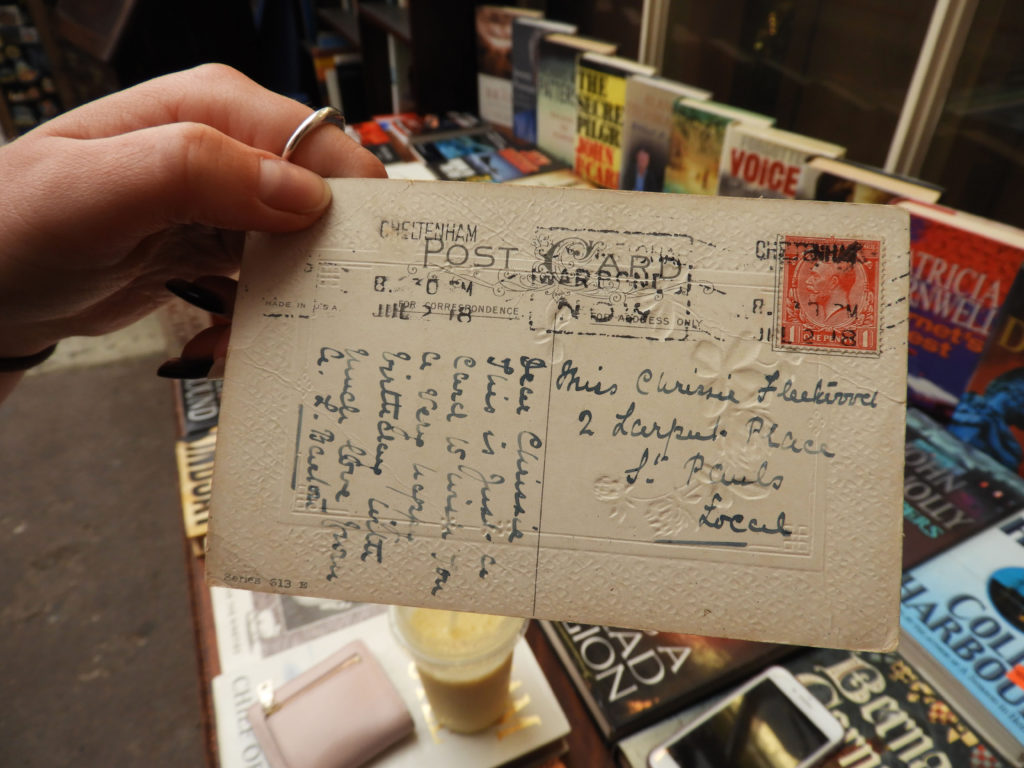
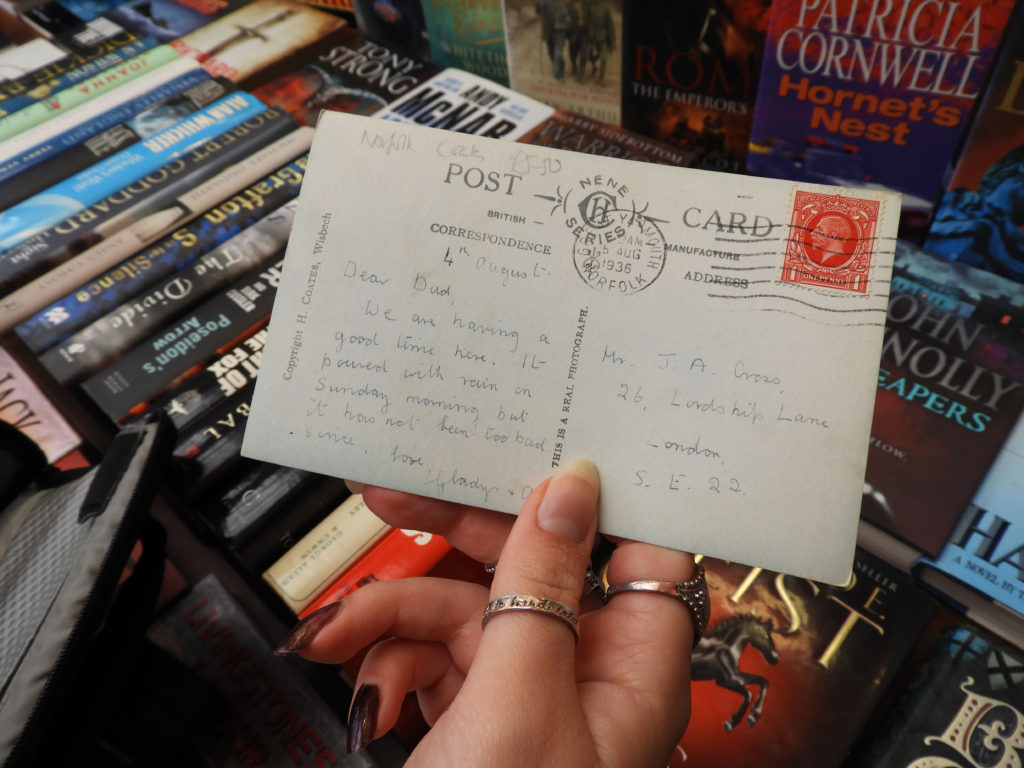
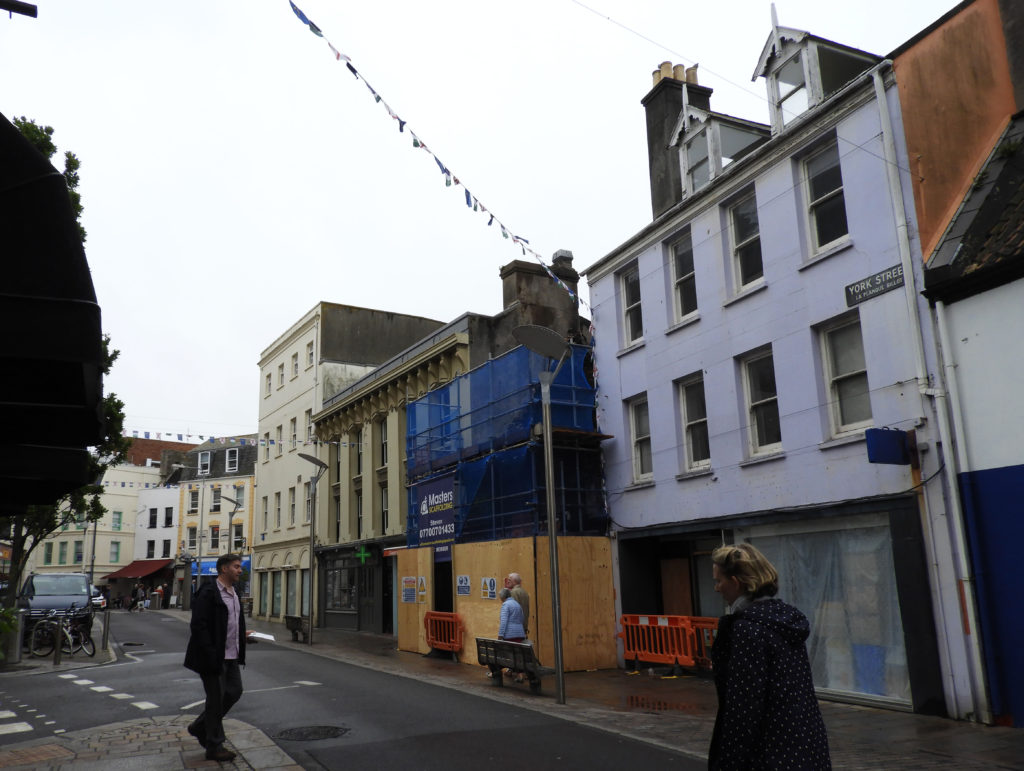
A2 PHOTOGRAPHY
PERSONAL INVESTIGATION
BUNKER ARCHAEOLOGY
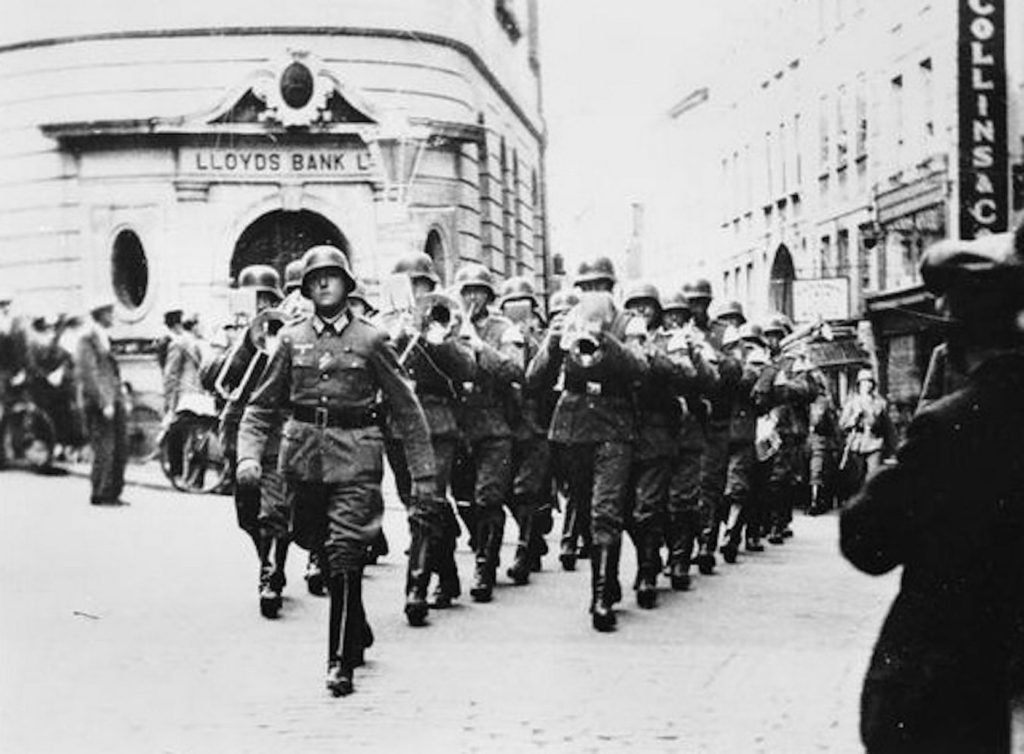
In March 1940, restrictions were lifted on travel to and from the mainland. The Channel Islands were seen as an important tourism centre and a boost to morale for British citizens. On 11 June, 26 Whitley bombers flew from Jersey and Guernsey to Italy to assist the British war effort in the battle of France. By 15 June, France had been lost to Germany and Sir Winston Churchill took the decision to demilitarise the Channel Islands, unbeknown to Hitler. On 16 – 18 June, Jersey Yacht Club assisted in the evacuation of British troops from St Malo but there were no plans to evacuate the islanders. Opinion was divided between the various island governors and in the confusion, each island made its own decision. Alderney evacuated everyone whereas the Dame of Sark instructed her inhabitants to stay. Guernsey began preparations to evacuate its children, giving parents the option to stay or go with them. With time running out, the majority of Jersey islanders chose to stay with just 6,600 leaving out of the 50,000 population.
Unaware the islands were demilitarised, Hitler bombed Jersey and Guernsey on 28 June 1940. Taking possession of a Guernsey airfield, German troops began arriving and by 1 July, Jersey had surrendered. Occupying the islands was a boost for German propaganda and formed part of Hitler’s defence plans for an Atlantic Wall.
On 8 May 1945, the Prime Minister, Winston Churchill, made his famous speech to mark the end of the war. Within it were the words:
“and our dear Channel Islands are also to be freed today.”
However, people in Jersey only officially realised the war was over when they saw HMS Beagle sail into St Aubin’s Harbour on 9 May. Today ‘Liberation day’ is marked with a public holiday for Jersey and Guernsey on 9 May, Sark on 10 May and Alderney on 16 May.
Jersey was one of the only places in the British Isles that was occupied by German forces during World War 2, the occupation took place from 1940 – 1995, being liberated on the 9th May 1945. Whilst Jersey was under the occupation of German forces the people of Jersey faced many changes; they were unable to access as much news from mainland Britain after having permission to utilise radios taken from them, petrol shortages became severe, bicycles were restricted to essential services, vehicles had to be driven on the wrong side of the road, and the island of Jersey was ordered to use a different time zone. During the occupation shopping hours were cut down as food became scarce, food shortages were slightly relieved as the charity the Red Cross began delivering food parcels to the island – but substitutes had to be used, for example, seawater was used in the place of salt. In Autumn 1944, the Autumn before Jerseys liberation, fuel was little to none, this meant that electricity was minimal and there was no gas. Medical supplies were none existent and healthcare was poor. On the 7th of May 1995 Germany had surrendered and the end of war for Europe was announced, on the 8th May 1945 the forces in Jersey received their orders to return to their camps in Portsmouth, and islanders were informed that Winston Churchill would broadcast the nation’s first official announcement that afternoon at 3pm,crowds began to gather at various locations to hear the announcement that would declare their liberation. At 7:15am on the 9th May 1945 on the quarter deck of HMS Bulldog, Second-in-Command for Guernsey, Siegfried Heine, signed the Instrument of Surrender on behalf of the German Command of the Channel Islands, effecting their liberation, as soon as this was completed he was to “immediately cause all German flags and ensigns now flying in the Channel Islands to be lowered”. At midday on the 9th May 1945 Jersey was officially liberated from the five year occupation of German Forces.
– Winston Churchill, 8th May 1945
“unconditional surrender of all German land, sea and air forces in Europe”
– Winston Churchill, 8th May 1945
“our dear Channel Islands are also to be freed today”
